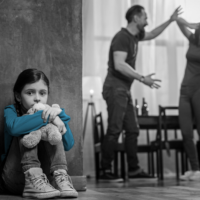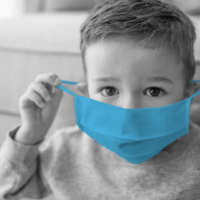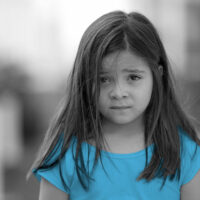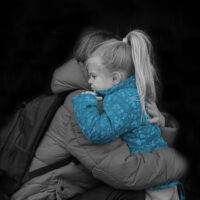Adverse Childhood Experiences (ACEs) are defined as situations that lead to an elevated risk of children and young people experiencing damaging impacts on their health and other social outcomes across the life course.
ACEs – Adverse Childhood Experiences
-

Mental Health Intervention for Children with Epilepsy – recording
We were delighted to welcome Professor Roz Shafran (pic) and Dr. Sophie Bennett to present up to date outcome data of the ‘M.I.C.E—Mental Health Intervention for Children with Epilepsy’ study.
Read more -

Psychosis; Schizophrenia, Hearing Voices, and the Language of ‘Madness’ – recording
Delegates only currently have access to this. This webinar brings together current research, looks at understanding of the concept of psychosis, assessing and managing it, along with exploring the appropriateness of using diagnostic labels and the impact of language in mental healthcare.
Read more -

Subjective and objective experiences of childhood adversity: a meta-analysis of their agreement and relationships with psychopathology
Open Access paper from the JCPP – ‘Researchers use both subjective self-report and objective measures, such as official records, to investigate the impact of childhood adversity on psychopathology. However, it is unclear whether subjective and objective measures of childhood adversity (a) show agreement, and (b) differentially predict psychopathology. To address this, we conducted a pre-registered meta-analysis to examine the agreement between subjective and objective measures of childhood adversity, and their prediction of psychopathology’. Emma R. Francis (pic) et al.
Read more -

Interrelationships between parental mental health, intimate partner violence and child mental health – implications for practice
This free webinar is open to all, and is organised by ACAMH’s Adverse Childhood Experiences (ACEs) Special Interest Group Monthly seminars. This webinar ‘Interrelationships between parental mental health, intimate partner violence and child mental health – implications for practice’ will be led by Prof. Gene Feder, Dr Shabeer Syed, and Dr Claire Powellon behalf of the NIHR Children and Families Policy Research Unit.
- Event type
- FREE live stream
- Location
- FREE live stream
-

What can we learn from hunter-gatherers about children’s mental health?
In this Papers Podcast, Dr. Nikhil Chaudhary and Dr. Annie Swanepoel discuss their co-authored JCPP paper ‘Editorial Perspective: What can we learn from hunter-gatherers about children’s mental health? An evolutionary perspective’.
Read more -

Stress, adversity, COVID; caring for children with an intellectual disability (recording)
This free webinar was organised by ACAMH’s Adverse Childhood Experiences (ACEs) Special Interest Group Monthly seminars. In this session we welcomed Dr. Jeanne Wolstencroft, Research Fellow at the Great Ormond Street UCL Population, Policy and Practice Dept., presenting findings from The IMAGINE—ID consortium.
Read more -

Clinical Review: Sleep disturbance as transdiagnostic mediator between adverse childhood experiences and psychopathology in children and adolescents: A structural equation modeling meta-analysis
Open Access paper from JCPP Advances – ‘The present study used a novel two-stage meta-analytic structural equation model to investigate whether ACEs predict psychopathology through sleep disturbance’. Jianlin Liu et al.
Read more -

The PRIMERA Project – Parental Mental Health and Family-Focused Interventions
In this ‘In Conversation’ podcast, Professor Sinéad McGilloway and Christine Mulligan provide valuable insight into the PRIMERA programme, which investigated how best to support young families experiencing parental mental illness.
The PRIMERA project team won ACAMH’s prestigious Lionel Hersov Memorial Award in 2022.
Read more -

Tackling Adverse Childhood Experiences (ACEs) State of the Art and Options for Action – Jack Tizard Memorial Conference
BOOKINGS CLOSED
We have taken the title of the 2023 Jack Tizard Memorial Conference from a current WHO review by Professor Mark Bellis and colleagues from the Collaborating Centre on Investment for Health and Wellbeing. The idea of taking stock, and reviewing our thinking about Adversity, Trauma and the mental health and well-being of children and young people is a timely theme.- Event type
- National Conference
- Location
- LIVE STREAM
-

Trauma and Looked After Children – recording
The Association for Child and Adolescent Mental Health, in collaboration with Child and Family Training (C&FT) and Improved Futures (IF) present a series of Briefing Seminars on ‘Dealing with distress, restoring well-being, and promoting resilience of Looked After Children and young people who have suffered extensive trauma’. Our goal is to help Looked After Services, Social Workers, […]
Read more